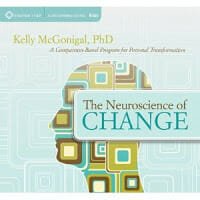ADHD: Thought-Action Patterns
October 19, 2012
Moving Toward Self-Compassion
November 5, 2012Improving Working Memory
People living with ADHD can struggle with working memory. This is the part of memory that holds information as it is being processed and either generates a response or puts it away for later. It can also be thought of as “attention” because it holds the information that we’re paying attention to.
Those with ADHD can have working memory weakness, such as:
- Distractibility
- Misplacing things
- Forgetting what is told to them
- Inability to focus on reading
- Impulsive decision making
It’s important to identify which working memory problems you may be experiencing before you can find a solution to those problems. Here are some strategies that tend to be helpful for those struggling with their working memory:
Make important items and tasks stand out so that you can focus on them.
- Do tasks right away. Rather than trying to hold onto the information, complete the task while it’s still strongly in your working memory. (Don’t tell yourself, “I’ll do it in a minute.”)
- Use items as their own reminders. Put an item in a place that will help you remember to do something with it. (This will only help if you don’t have a thousand things to do.)
- Take a item with you as a reminder. If you get interrupted when you’re doing a task, bring something from the task with you to remember to do it. For example, bring a sock with you to answer the door if you’re in the middle of laundry.
- Ask someone for a reminder. Ask those around you to give you a reminder later. Ask a co-worker to send you a reminder email instead of them asking for something while passing by in the hall.
- Highlight important information. Brightly colored items stand out from everything else, so tag emails as urgent or write a big red star on an envelope you need to do something with.
- Put up a note. Tape up a reminder about something you’re working on or something you need to do frequently. For example, you can tape up a picture of a glass of water on your mirror to remind you to drink water more often.
The fewer distractions, the easier it is to stay focused.
- Reduce distractions. Turn off your cell, close your office door, ask not to be interrupted, etc.
- Get rid of stuff. The less stuff you have, the easier it is to organize. You’ll need to make some tough choices about what deserves to be kept and what doesn’t.
- Bring less stuff in. Resist the temptation to acquire something new, because you’ll have to work to find a place for it.
- Put things away. The less stuff you have, the easier it is to pay attention to what you’re working on. Reduce or remove the piles on your desk or have fewer windows open on your computer.
- Remove yourself from mailing lists. Unsubscribe from email lists and don’t renew magazine subscriptions you don’t read often. Delete junk emails right away, and place a recycling bin near your door to quickly toss mail.
- Limit the activities you’re involved in. Consider what value the activity adds as opposed to the stress it creates.
- Cross off or remove items from your to do list. Cross off a task as soon as it is completed, so you can continue on to the next important task. If you decide that a task doesn’t make the cut, remove it from your list.
Write things down rather than try to keep them in your head.
- Write yourself a reminder. If you’re not going to do it right away, write the thought down immediately on a to-do list, Post-it note, send yourself an email, etc.
- Write out detailed problems. Instead of trying to figure things out in your mind, write it all out for you to see. For example, when planning how long something will take, write down each step and the estimate of the time it will take. Or write out a shopping list of everything you’ll need to complete a project.
- Write out notes for multi-step directions. Write out notes so you don’t forget a step. Refer back to notes and check off as you complete steps.
If you would like to work more on your working memory, try writing down your past experiences with the strategies above that you’ve used before. Write down what obstacles stand in the way of you using these strategies more. Also, write down how or where you could use the strategies more often.
If you would like to speak with a counselor in the Fargo-Moorhead area about your ADHD, please visit kamajensen.com.


